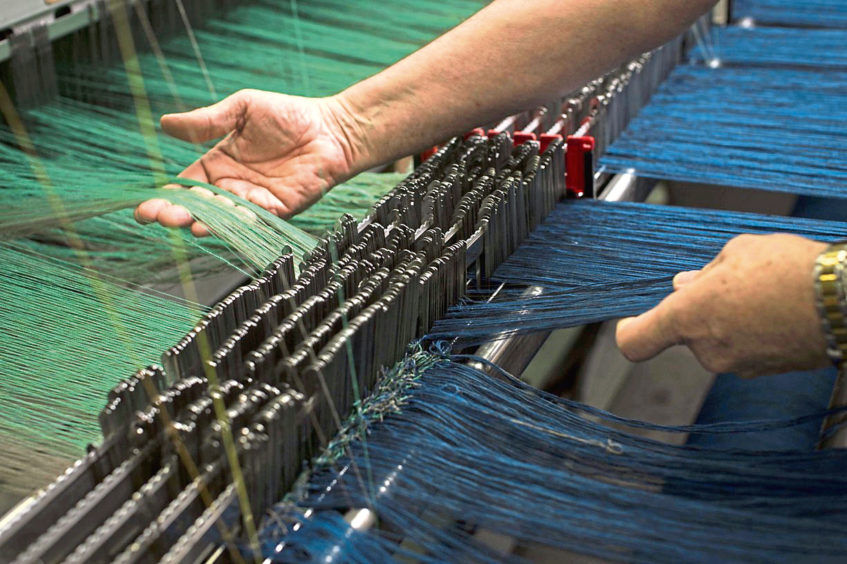High street fashion retailers can win shoppers’ trust by challenging “green washing” by big brands, the boss of Johnstons of Elgin will tell global industry leaders this week.
Simon Cotton, the Moray cashmere firm’s chief executive, believes sustainability is now “the only game in town” in the sector and shop chains have an opportunity to become “trusted intermediaries” for consumers.
Mr Cotton said “people don’t trust brands” in the textile fashion industry, because of their tendency to make a “big splash” about one part of their production to publicise their green credentials, while ignoring other parts of their processes.
Talking to The Press and Journal ahead of the influential Retail Summit, in which he is one of the speakers, Mr Cotton said the industry needed to start taking a “broader view” of the sustainability issues it is facing.
The two-day annual summit, which this year has the theme “Retail’s New and Resilient Future” starts tomorrow, with a line-up of senior speakers from the global industry and associated sectors. Normally held in Dubai, the event is being staged online.
Mr Cotton said retailers may become the “most important actors” in putting sustainability at the forefront of the industry’s efforts to recover from the Covid-19 crisis.
He added: “Retailers have been struggling over how to involve themselves in this process. We have got a lot of retailers that really want to be demonstrating they are committed to it.
“Obviously they look at things like their own electricity use in store and that’s fine, but it’s not significant versus the products they sell.
“Multi-brand retailers have a possibility to become the trusted intermediaries on this because, to be honest, people don’t trust brands.
“If you go into somewhere like Selfridges, and it has a policy of vetting suppliers based on sustainability, then I think you really have a chance of being a trusted intermediary. That’s what consumers want because it’s very difficult to cut through all the green washing that’s going on.”
Mr Cotton said retailers could have a positive role in policing brands, making sure any claims are accurate and people do not just divert attention by “focusing on one particular thing”.
He said that was something Johnstons was able to do as it controlled everything “from fibre to finished product”, including chemical uses, transportation and labour, which he described as a “huge issue”.
Johnstons is one of the few remaining vertical mills in the UK that still processes raw cashmere and fine woollen fibres through to finished products.
The company has been making cashmere and tweed products on the banks of the River Lossie since the late 18th Century and selling into international markets since the 1860s.
Founded in 1797, the firm runs mills in Elgin and Hawick, and employs around 1,000 people producing cloth and knitwear for luxury brands and under its own Johnstons of Elgin label. It also has shops in London’s New Bond Street and on Multrees Walk in Edinburgh, as well as at its production sites.
The Queen’s Award-winning business is controlled by members of the Urquhart family behind the Gordon and MacPhail whisky company and Benromach Distillery.
More than 60 other speakers at this week’s prestigious Retail Summit include Pepe Jeans chief executive Marcella Wartenbergh, Chris Davis, chief marketing officer of global sportswear brand New Balance, and Nandos co-founder Robert Brozin.

